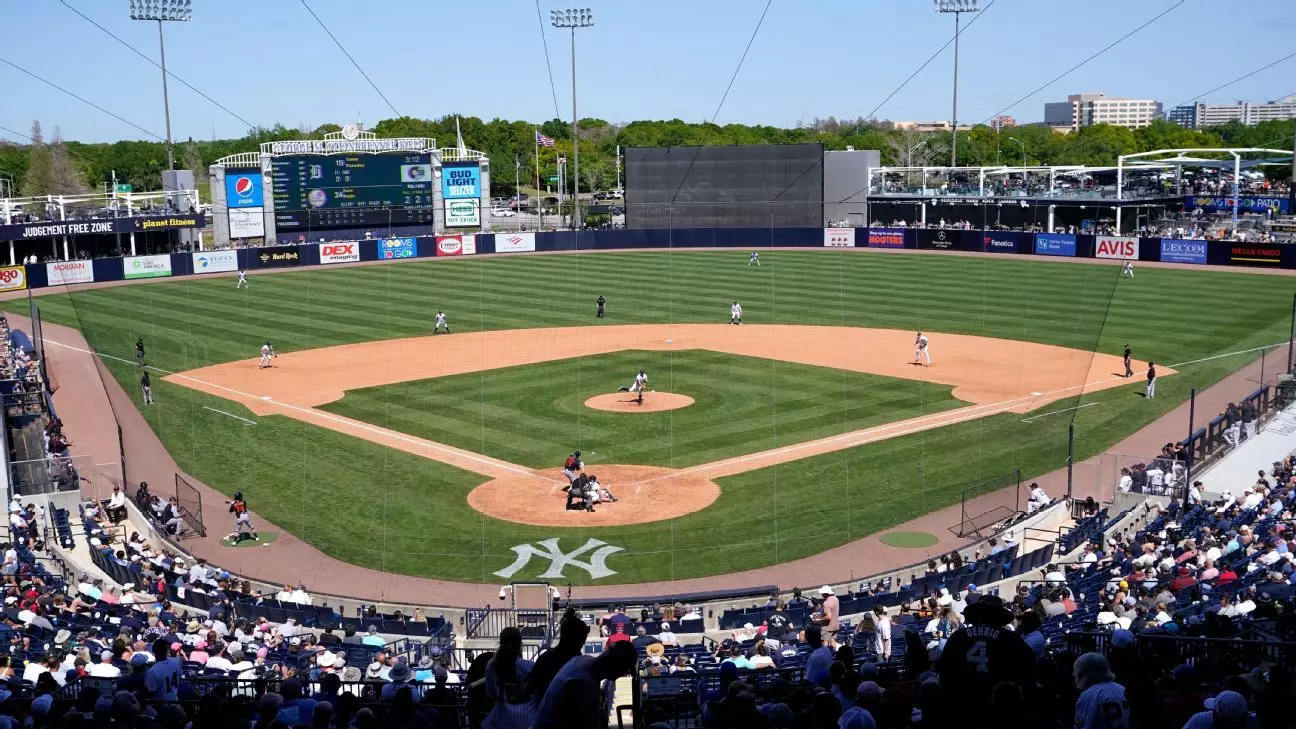Strategic Scheduling: Tampa Bay Rays’ Revamped 2024 Season Plan
Hey there, fellow baseball fanatics! If you’re anything like me, you’re always on the lookout for how teams adapt to challenges, and the Tampa Bay Rays are doing just that with their 2024 season plan. After the unfortunate hits of Hurricane Milton on Tropicana Field, Major League Baseball (MLB) has taken some bold steps to adjust the Rays’ schedule. It’s a fascinating mix of strategy and adaptation, especially when you consider how the Florida weather plays into it all. So, let’s dive into how this revamped plan is shaping up!
There’s something about baseball that draws you in—perhaps it’s the crack of the bat or the excitement in the air during a close game. For those of us who follow the Rays, it’s been a journey of ups and downs, and this year is no different. The team is relocating several series to earlier months in an attempt to dodge those notorious summer rainstorms. It’s a smart move considering how unpredictable Florida’s summer weather can be. These changes are not just about logistics; they’re about crafting opportunities for success amid adversity.
Key Takeaways
- The Tampa Bay Rays will play most of their early-season games at Steinbrenner Field.
- April and May present lower rainfall averages, offering a strategic advantage.
- The revised schedule highlights significant travel challenges later in the season.
- Weather patterns have heavily influenced MLB’s scheduling decisions for the Rays.
Home Field Advantage: Planning Around Weather Patterns
The Tampa Bay Rays find themselves with an interesting home game setup this year. Imagine starting your season with 19 out of 22 games at what will be their temporary home, Steinbrenner Field. It’s almost like having a secret weapon up their sleeve! These early months—April and May—are crucial because they allow the team to leverage favorable weather conditions. Historical data from the National Weather Service provides some comfort here, showing that average rainfall is much lower during these months compared to what usually happens in June and July.

This strategic scheduling could really benefit the Rays by maximizing both attendance and revenue before the heavy rains hit. With less rain to worry about in spring, fans can come out in droves to support their team without packing ponchos or umbrellas. However, this shift does bring its own set of complexities. After this initial homestand, Tampa Bay embarks on quite a challenging road trip. Picture playing 64 out of their last 108 games away from home! Talk about needing stamina and resilience!
This schedule demands careful logistical planning as well as physical endurance from the players. The absence of Tropicana Field until at least 2026 adds another layer of complexity for the team. They’ll need to adjust their preparation strategies for away games significantly. While it seems like a daunting task, there’s also a chance for growth here. The constant travel could strengthen team bonds and foster a unique camaraderie among players as they navigate these uncharted waters together.
Yet, with every opportunity comes potential pitfalls. Summer’s unpredictable weather could disrupt even the best-laid plans. Just last season, we witnessed how rain impacted minor league schedules, with numerous cancellations affecting rhythm and performance. If similar disruptions happen this year, it could throw off the momentum built during those crucial early games at Steinbrenner Field. The key will be how well the Rays can adapt to these inevitable challenges.
The Road Ahead: Challenges and Opportunities
As we look ahead to the upcoming season, there’s a palpable sense of anticipation mixed with uncertainty for Tampa Bay fans. With early home games against teams like Colorado and Pittsburgh, there’s an opportunity for the Rays to gain early traction and build confidence. This revamped schedule isn’t just about avoiding rain; it’s about being proactive in crafting a path towards success amidst environmental challenges that could otherwise derail their ambitions.

The journey this season is all about resilience and adaptability. As they transition back to Tropicana Field once it’s ready, how they handle this unique schedule will be pivotal for their success. It’s almost like playing chess with Mother Nature herself! Will this gamble pay off? Only time will tell if these strategic shifts provide that solid foundation needed for recovery and growth within the franchise.
Final Thoughts
In wrapping up our discussion on this fascinating topic, it’s clear that MLB’s approach with Tampa Bay’s schedule is both innovative and necessary given current circumstances. While challenges undoubtedly lie ahead—from weather disruptions to rigorous travel demands—there’s also immense potential for triumphs along each step taken forward by adapting cleverly to these new conditions facing them head-on today more than ever before! So here’s hoping our beloved Rays rise above adversity yet again proving themselves resilient contenders no matter what comes next throughout challenging times ahead.
Tampa Bay Rays
MLB Schedule
Weather Challenges
Home Field Advantage


Leave a Reply